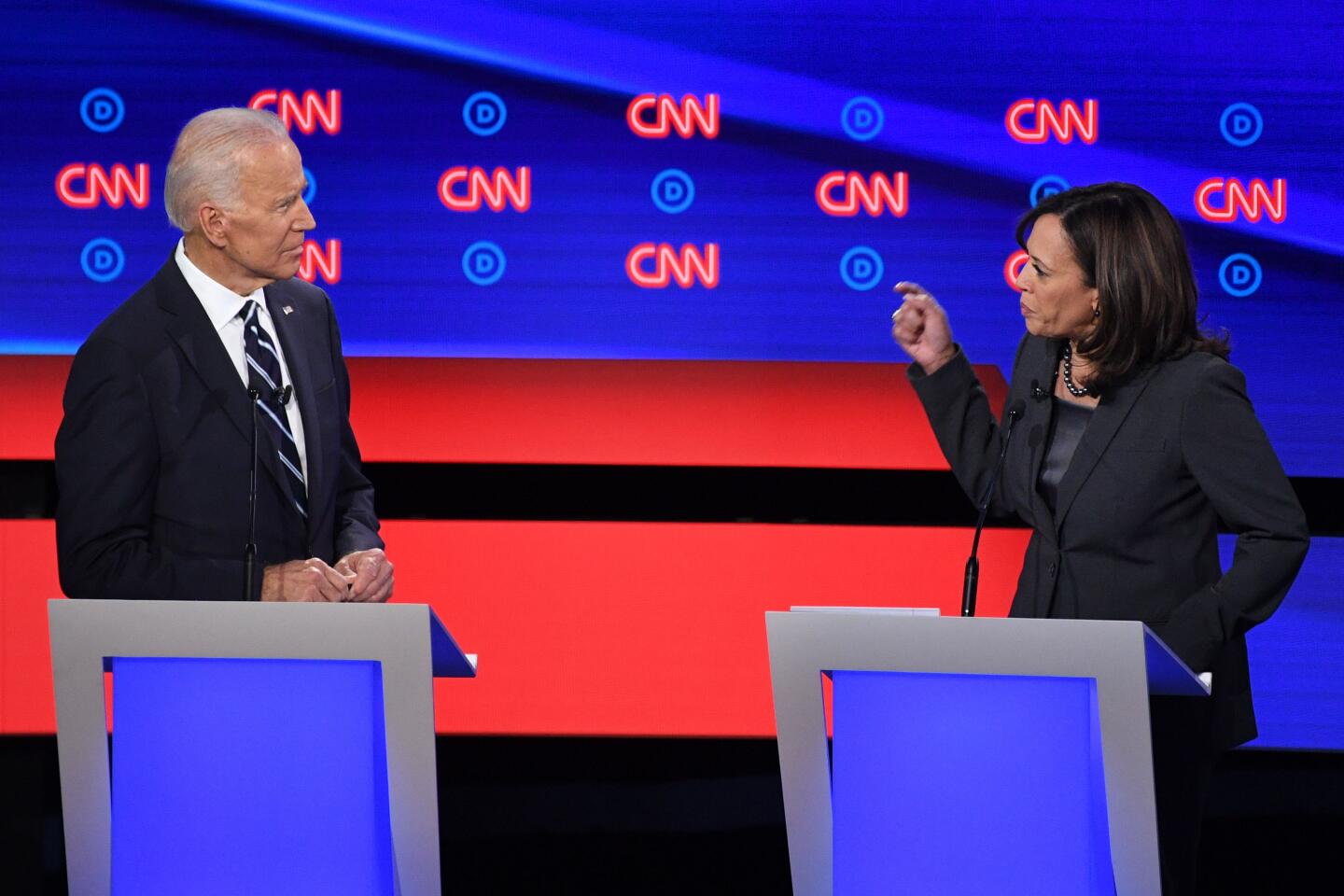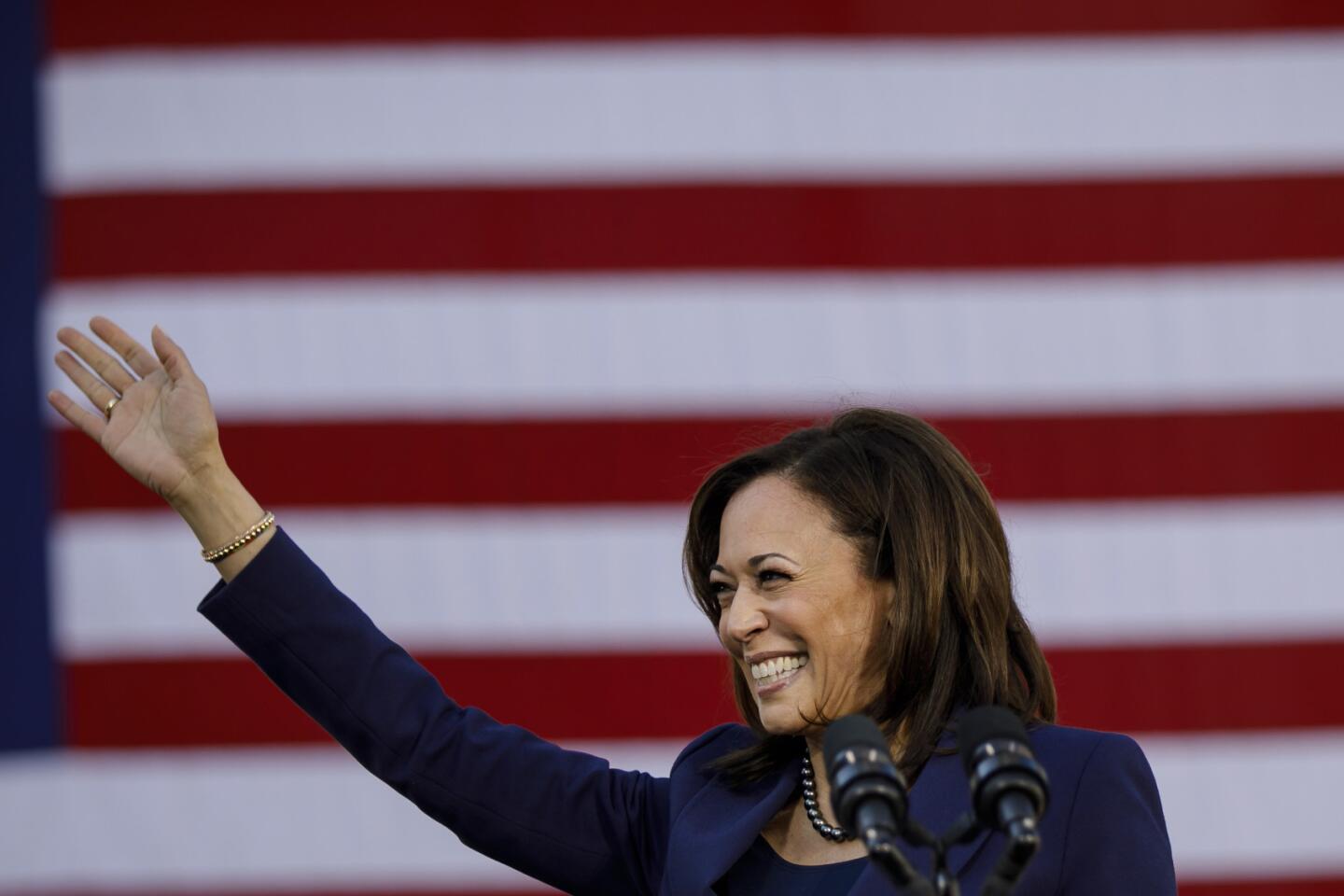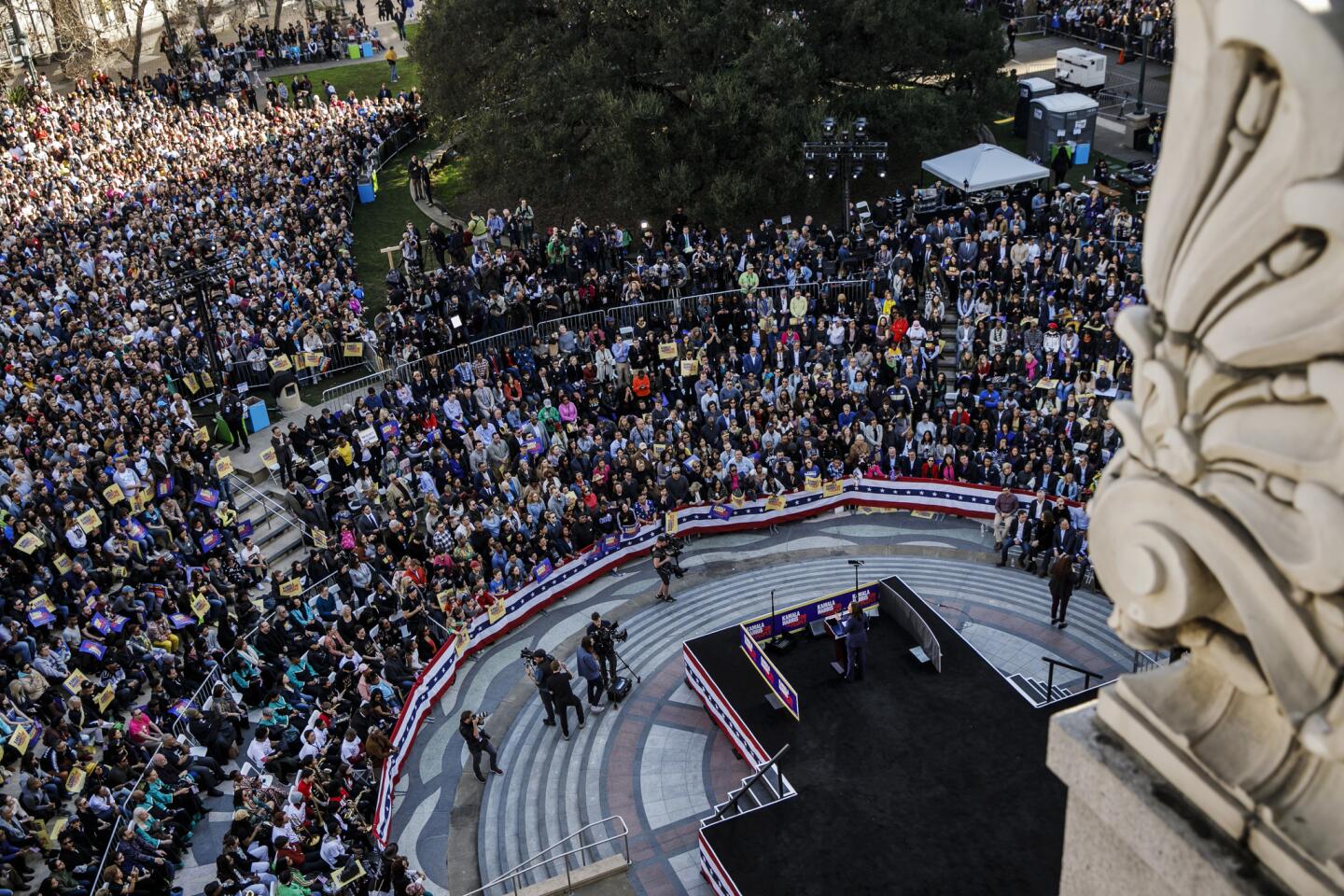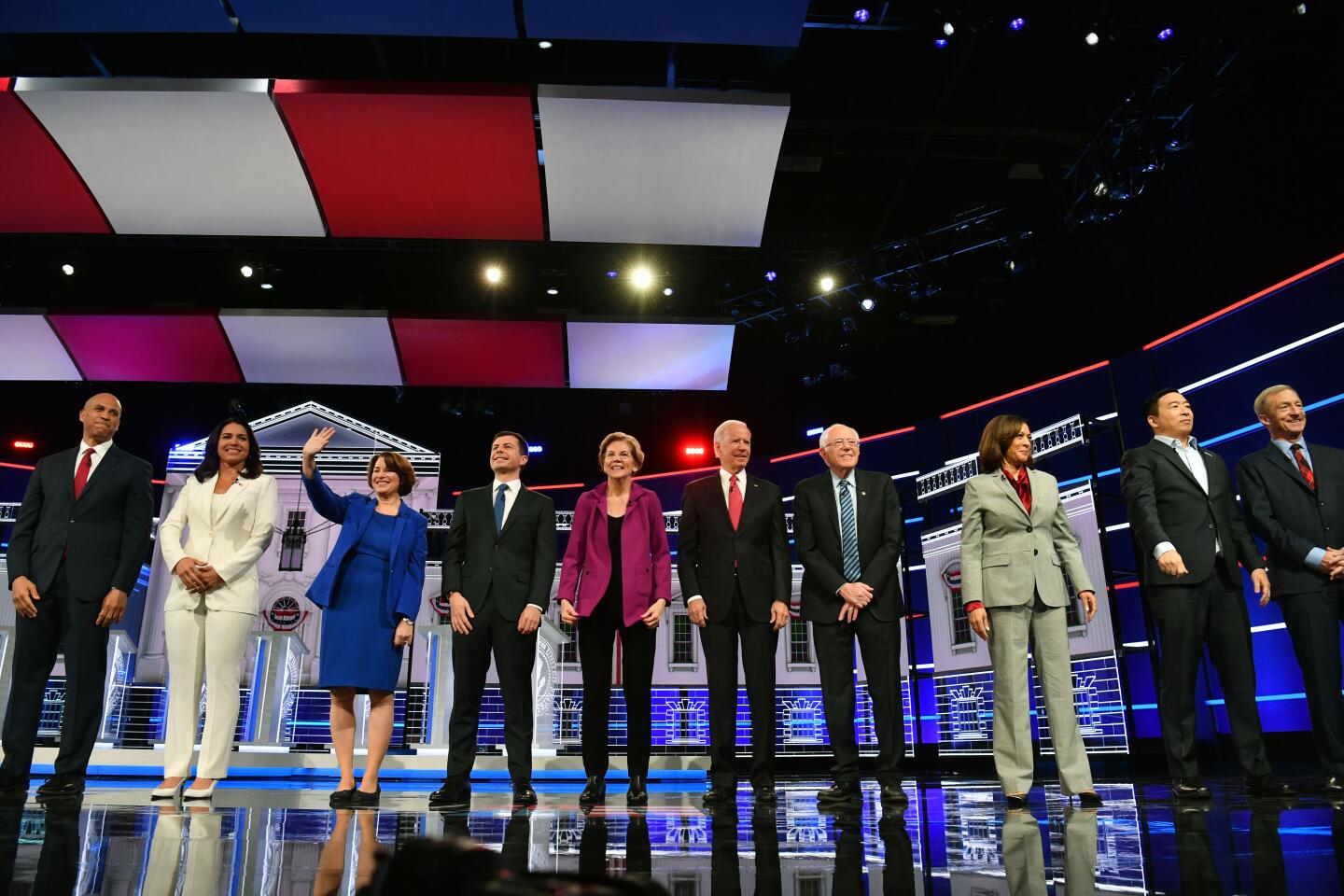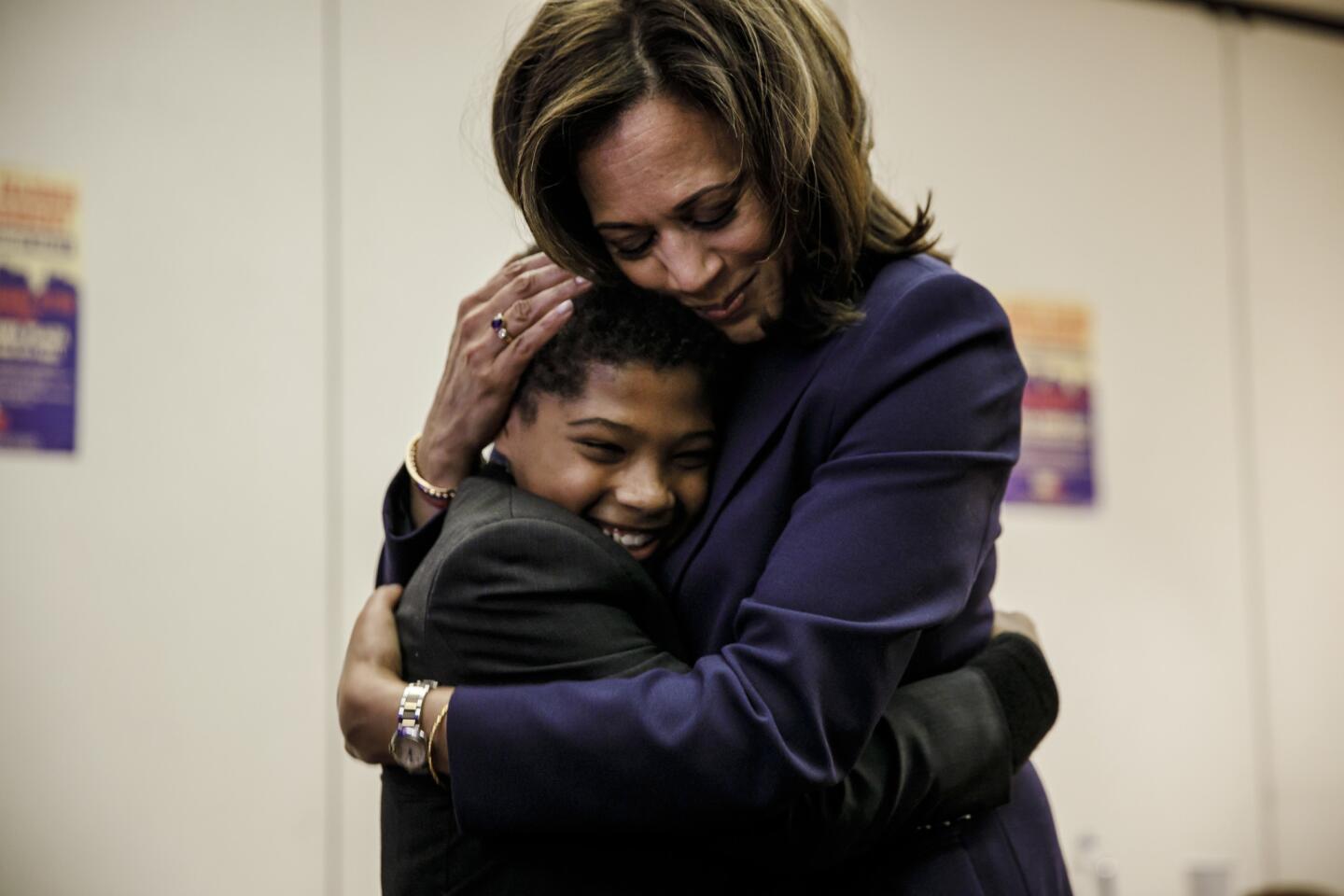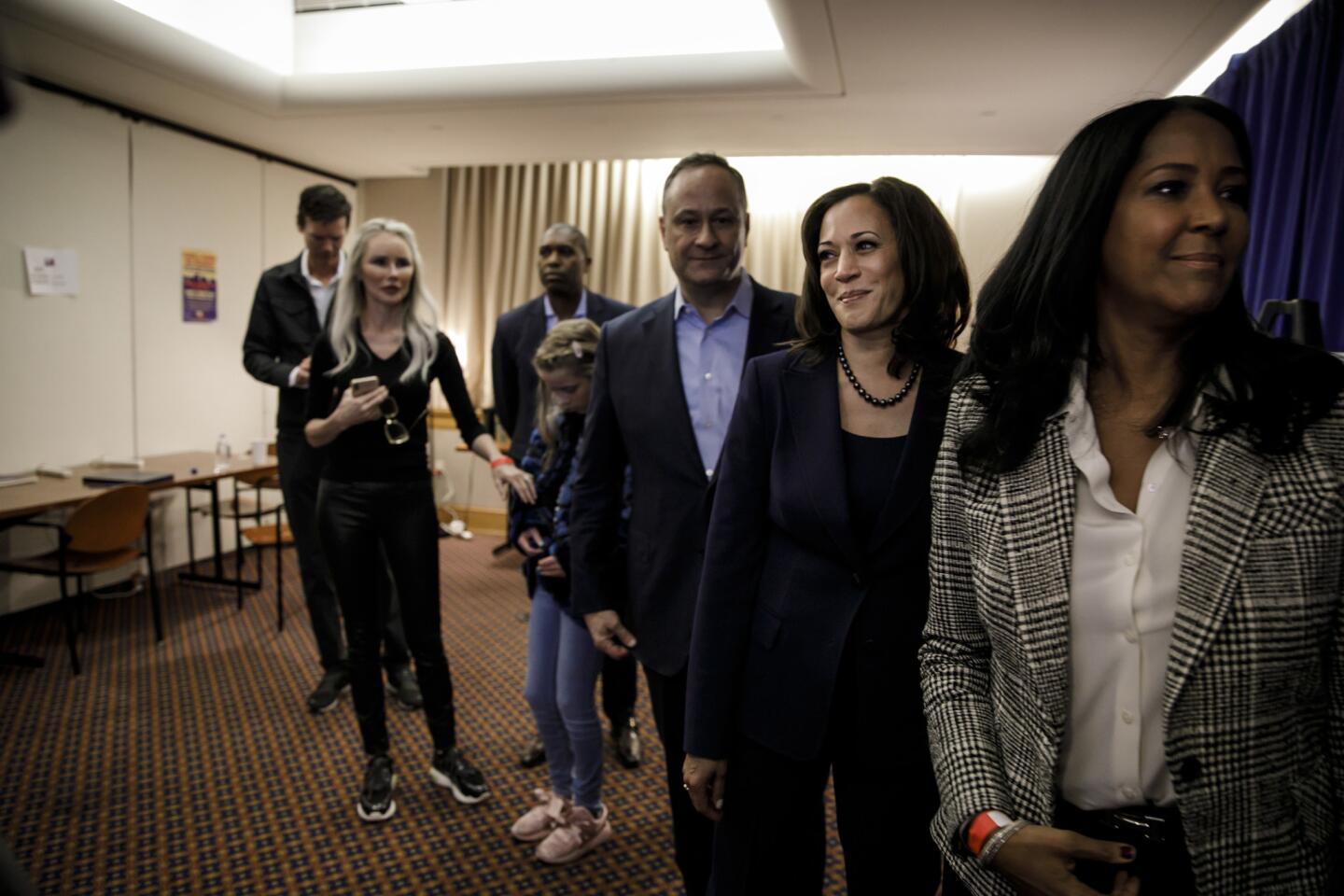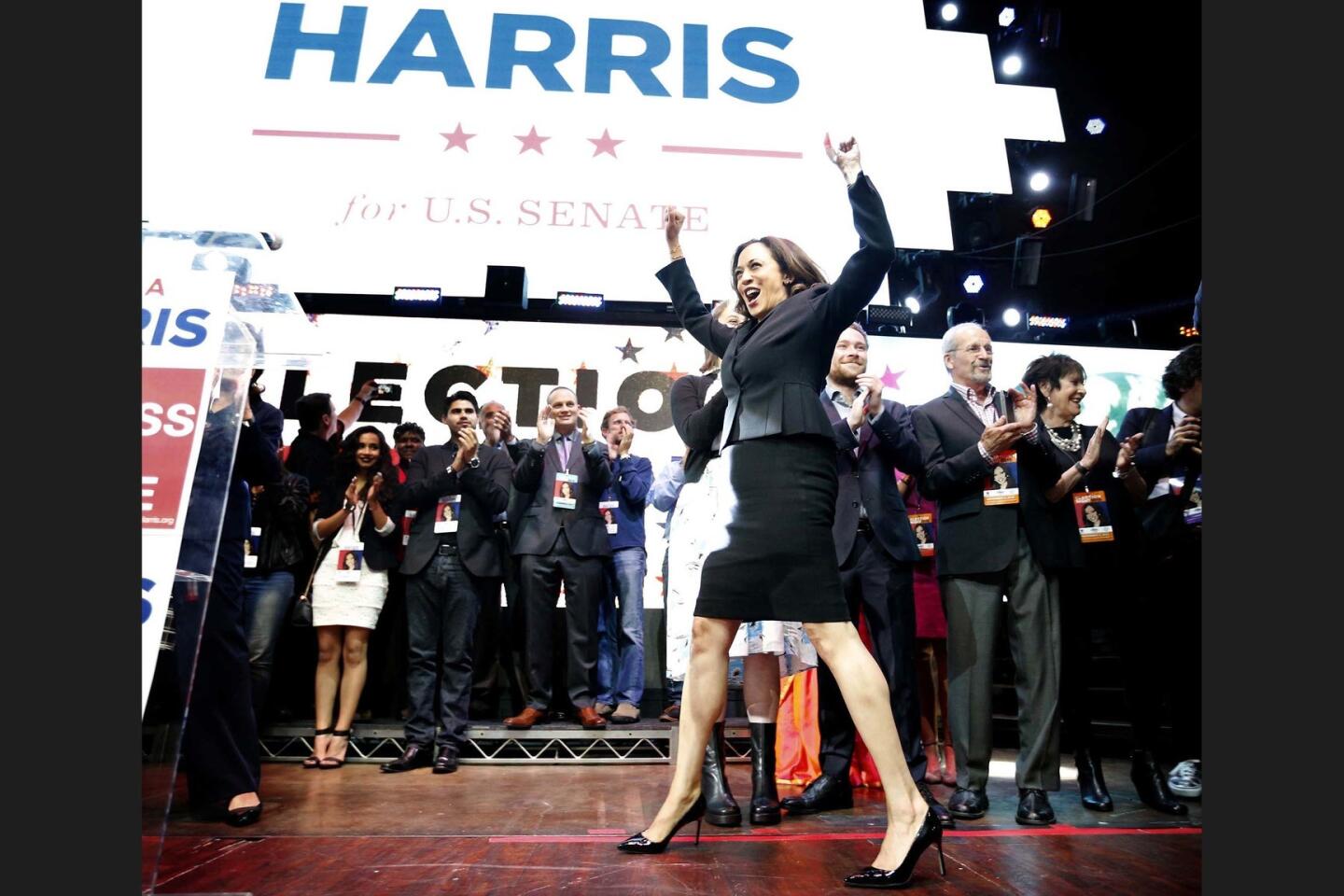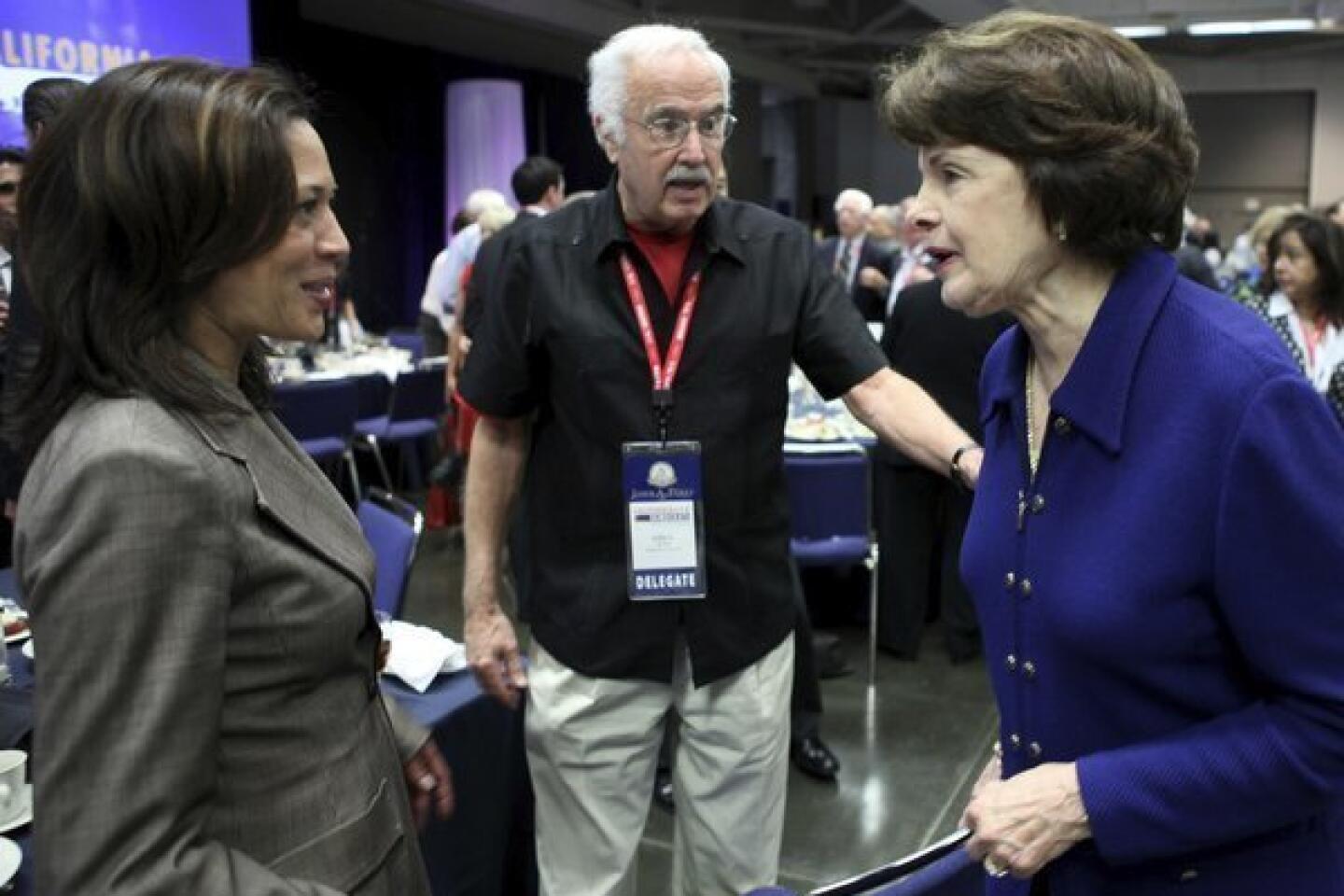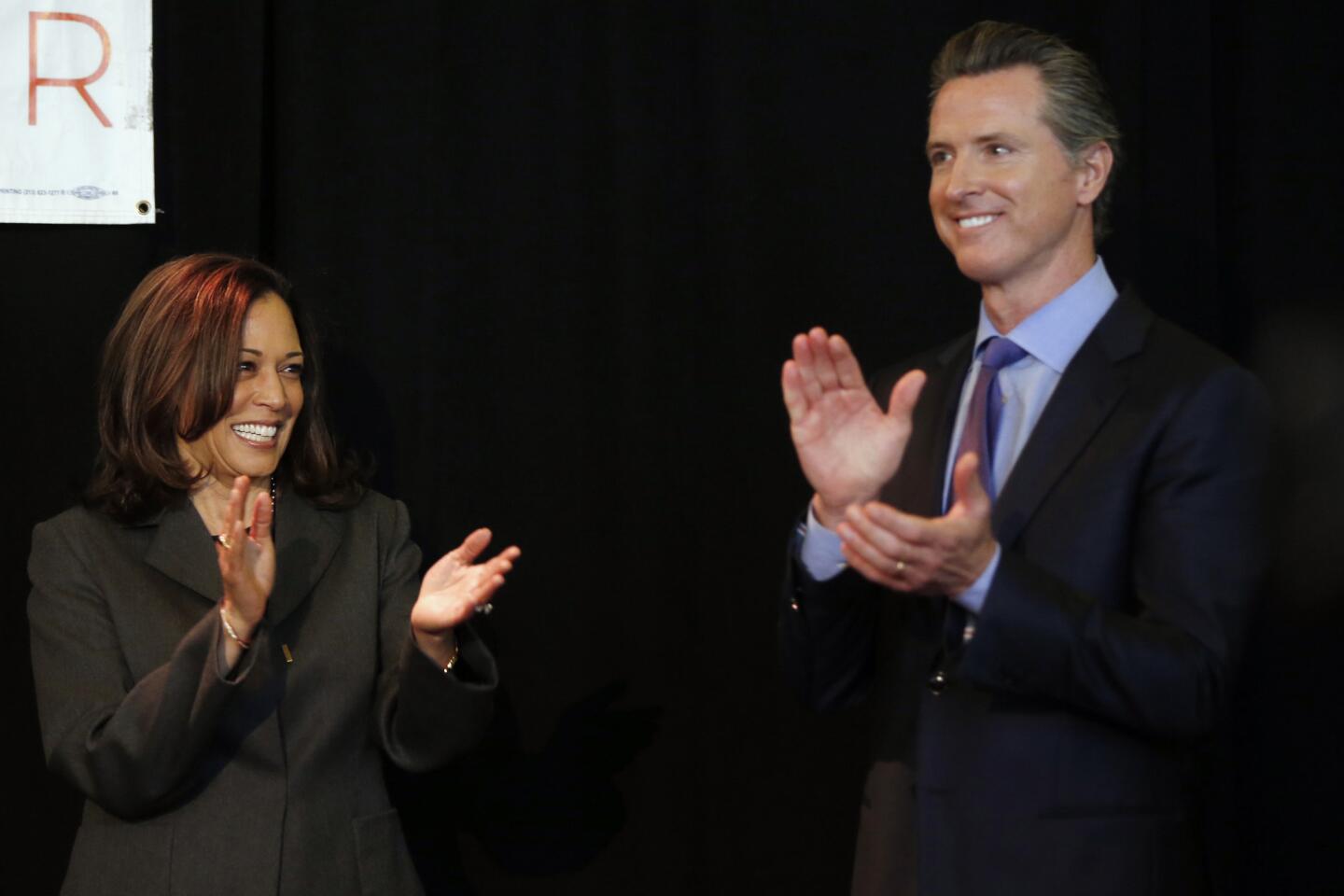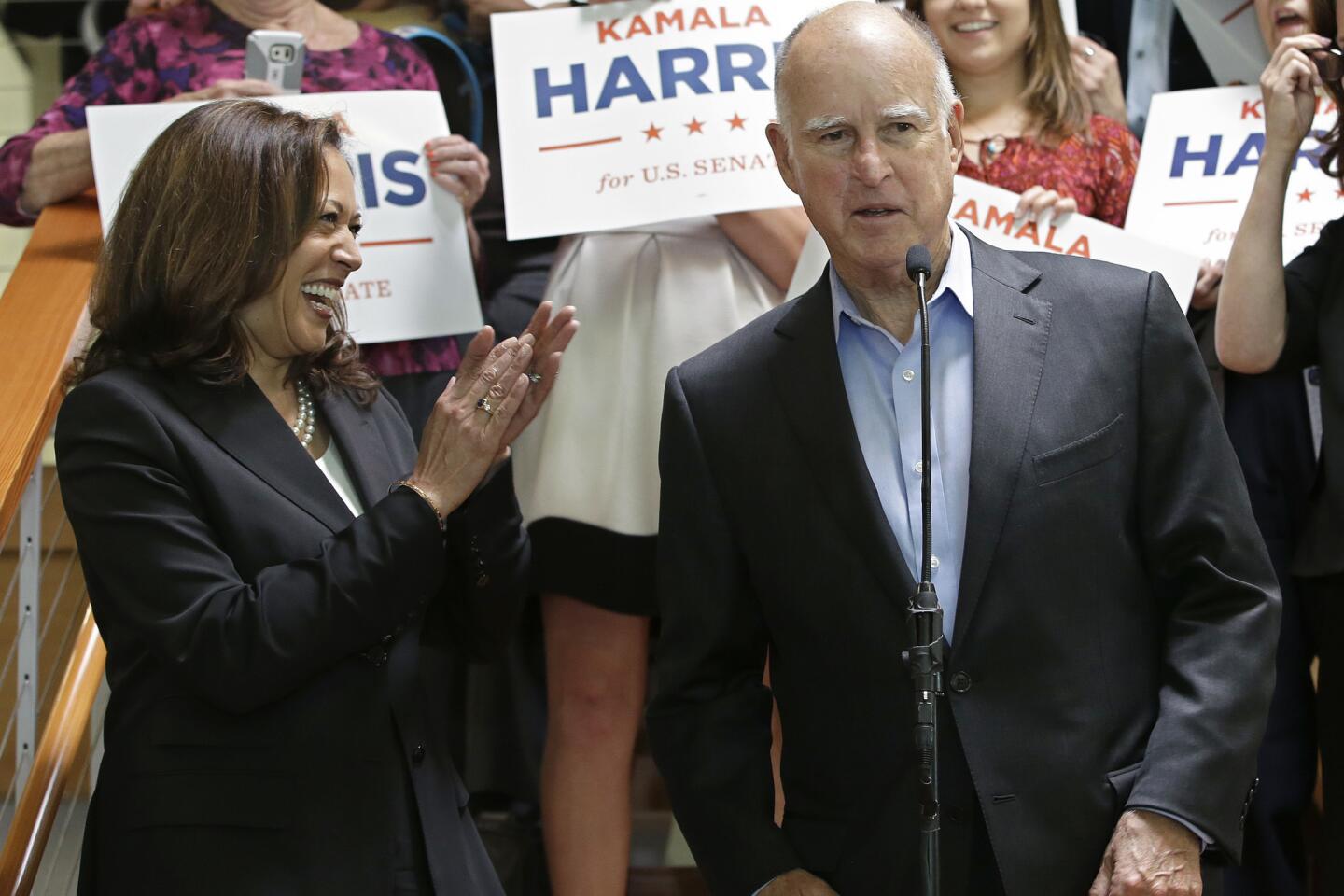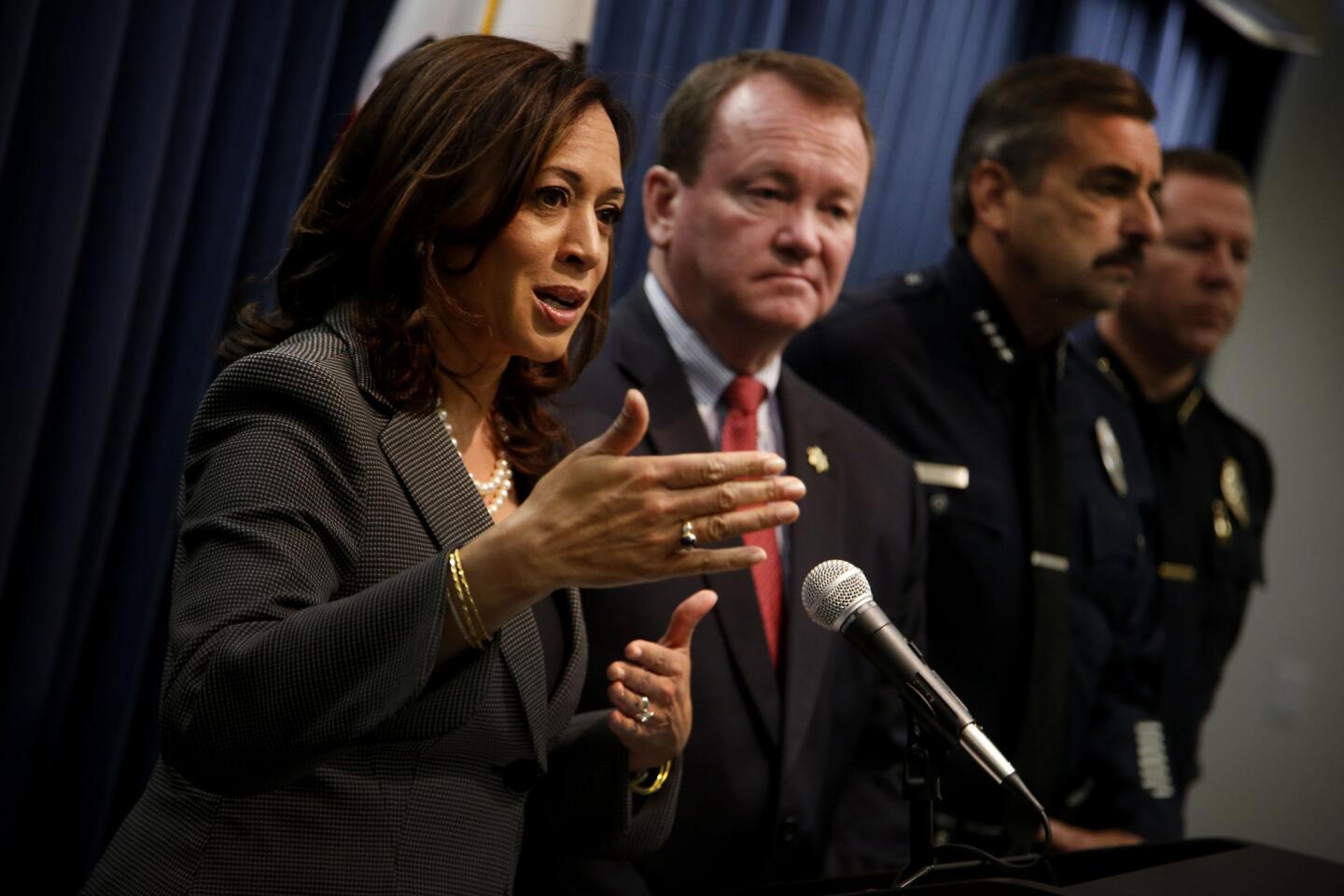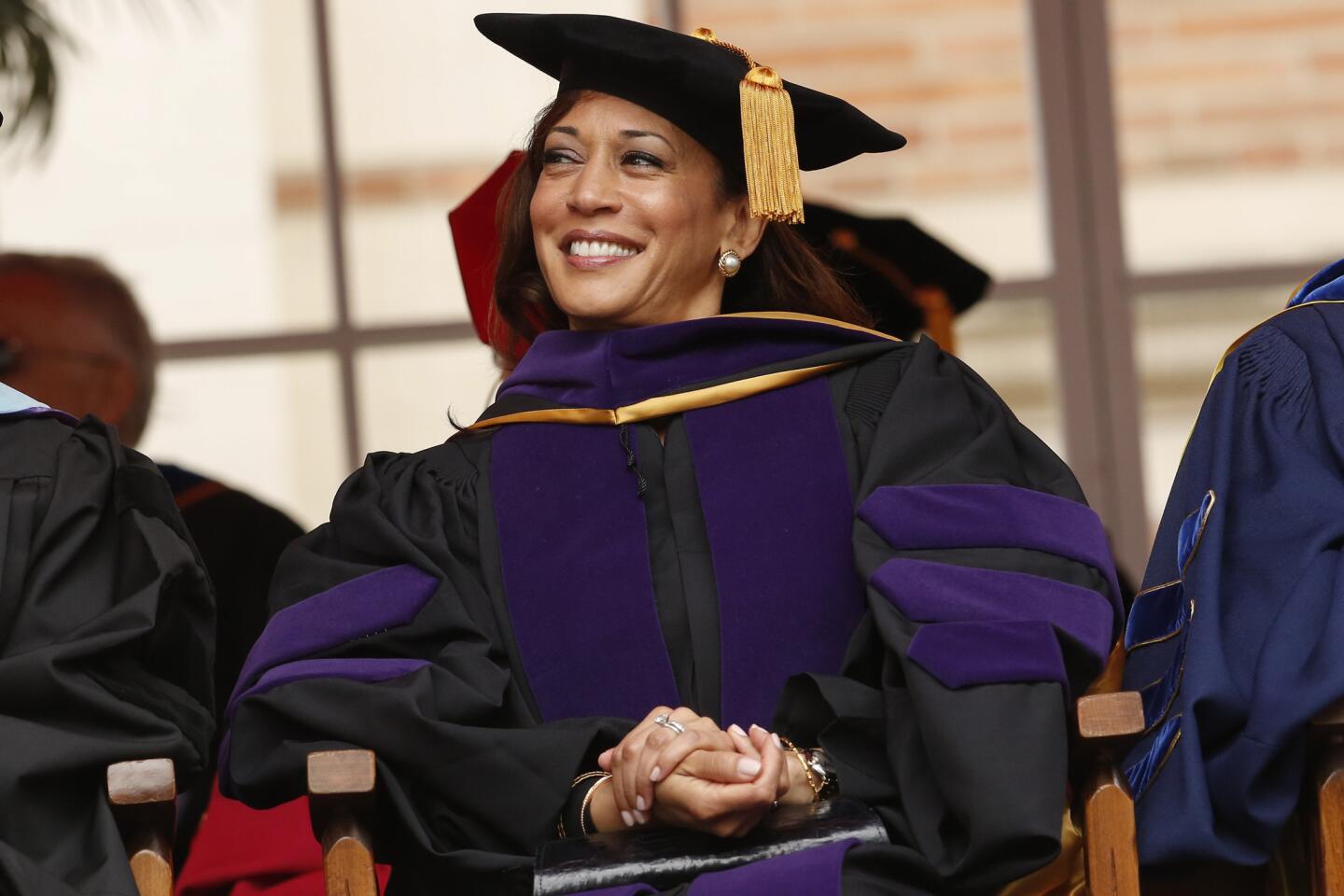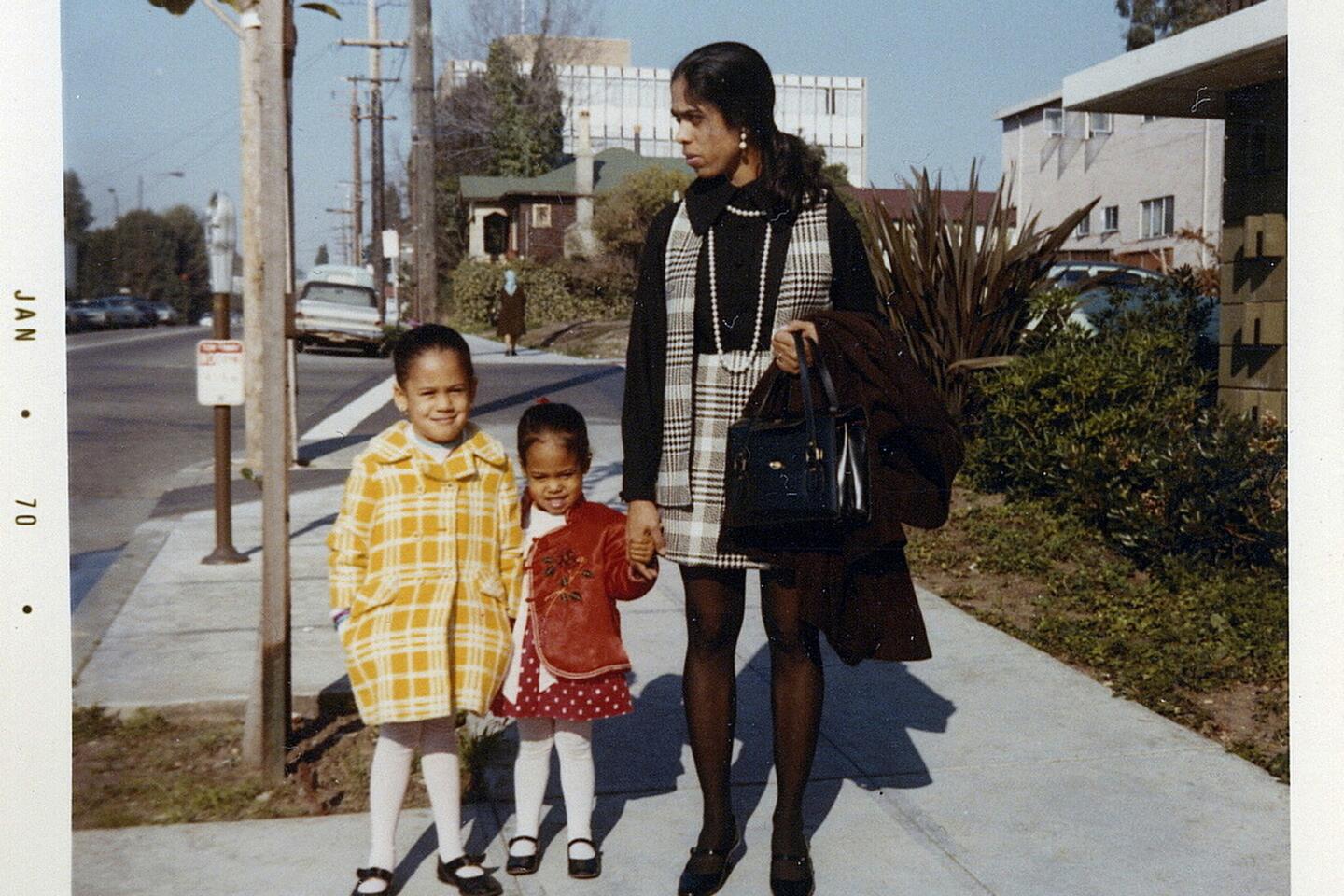Kamala Harris lays out the core ideals of her 2020 campaign in her new book, ‘The Truths We Hold’
As the campaign season ramps up, so too are the releases of political memoirs; we recently saw publication of Chris Christie’s “Let Me Finish,” as well as Cliff Sims’ gossipy “Team of Vipers: My 500 Extraordinary Days in the Trump White House.” One of the most high-profile books is by a notable entrant into the Democratic race for president. In “The Truths We Hold,” U.S. Sen. Kamala Harris makes her case for America’s attention, respect and votes. Books such as this tend to play it safe, and they aren’t built to change minds — I can’t see a Republican falling for Harris after reading her autobiography — but they do strive to attract supporters who might not know much about the candidate, put a positive spin on any potential negative talking points and paint a picture of what this person would be like were they ever to occupy the White House.
If the pages of her book are to be trusted, a Kamala Harris White House would be a busy, hardworking place staffed with serious policy wonks who strive to maintain a personal touch. It’s difficult to imagine a politician, or life story, in more direct contrast to the executive office’s current occupant (whose name, notably, appears only a scant handful of times in her book).
Harris grew up in Oakland, the elder daughter of immigrant parents — father from Jamaica, mother from India — who met in graduate school at Berkeley. The pair raised her and her sister in a household that valued education, political activism and community service. Her parents divorced when she was young; her mother, Shyamala, who had arrived at Berkeley as an act of rebellion against the social expectation that she would return to India and an arranged marriage, found her home in Oakland’s black community, where she was “welcomed and enveloped.” She raised her girls to be “confident, proud black women,” grounding them in a childhood anchored by music, church, piano lessons and a neighborhood community center.
All that changed when Shyamala, a cancer researcher, took a job in Montreal and moved the girls from the Bay Area, a place “bursting with black pride,” to a cold new city where she enrolled them in a French-speaking school named Our Lady of the Snows. After her Canadian sojourn, Harris went to Howard University, the historically black college, and then returned to her beloved California for law school.
As is the pattern in these books, Harris braids together the personal and the political — readers might find themselves tempted to skim through what feels like a campaign speech to return to a life story that genuinely entrances. But that would be a mistake; Harris provides a very clear picture of the kind of leader she hopes to be, as well as the way her mind works when she confronts various issues, including crime, healthcare and foreign policy.
Pointedly, she begins with a long chapter about her tenure as Alameda County district attorney, a job that has provoked some skepticism among potential voters on the left. Harris identifies herself as “a progressive prosecutor,” focused on fairness and justice. “I know that some … questioned how I, as a black woman, could countenance being part of ‘the machine’ putting more young men of color behind bars,” Harris writes, but she argues that her focus is on the victims, also disproportionately people of color. At the same time, she adds, we need to reform our prison system, which she says too often serves as “a living monument to lost potential.”
Harris is perhaps at her most impressive in talking about our current situation — both politically and economically. In letters from her constituents, she writes, she sees one narrative, “the story of Americans trapped in a cost-of-living crisis, where everything from housing and healthcare to child care and education is way more expensive than it used to be while wages remain as low as they’ve been in decades,” she writes. “The letters I receive consistently tell the story of the hollowing-out of the middle class.”
Throughout, there are unmistakable echoes of the kind of inclusive tone often struck by former President Obama. “For all our differences, for all the battles, for all the fights, we are still one American family,” she writes, “and we should act like it.” But at other moments, she hints at a harder edge than the “no-drama” former president. During her time as California’s attorney general, during the worst of the economic downturn, she found herself in a battle with the biggest mortgage bankers. “They seemed to be under the misimpression that I could be bullied into submission,” she scoffs. Later, she expresses her hope to be “a joyful warrior,” a phrase that harks back to the last century, and perhaps foreshadows a fierce fight for the country’s top office.
::
“The Truths We Hold: An American Journey”
Kamala Harris
Penguin Press, 318 pp; $30
More to Read
Sign up for our Book Club newsletter
Get the latest news, events and more from the Los Angeles Times Book Club, and help us get L.A. reading and talking.
You may occasionally receive promotional content from the Los Angeles Times.
